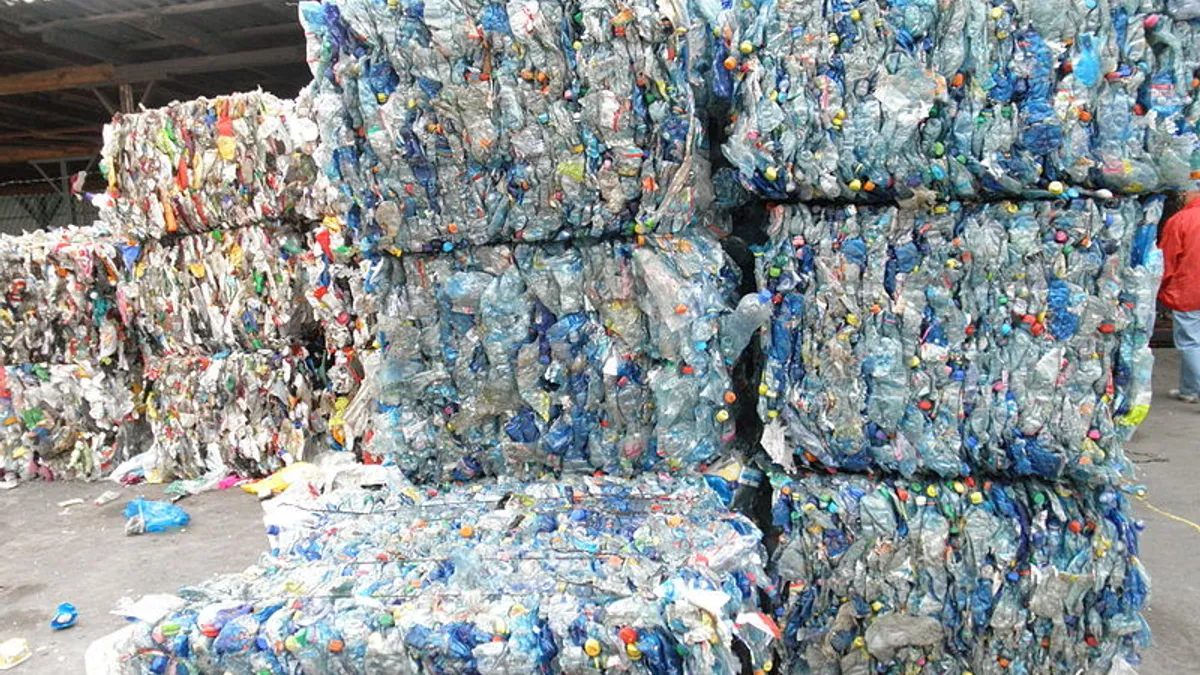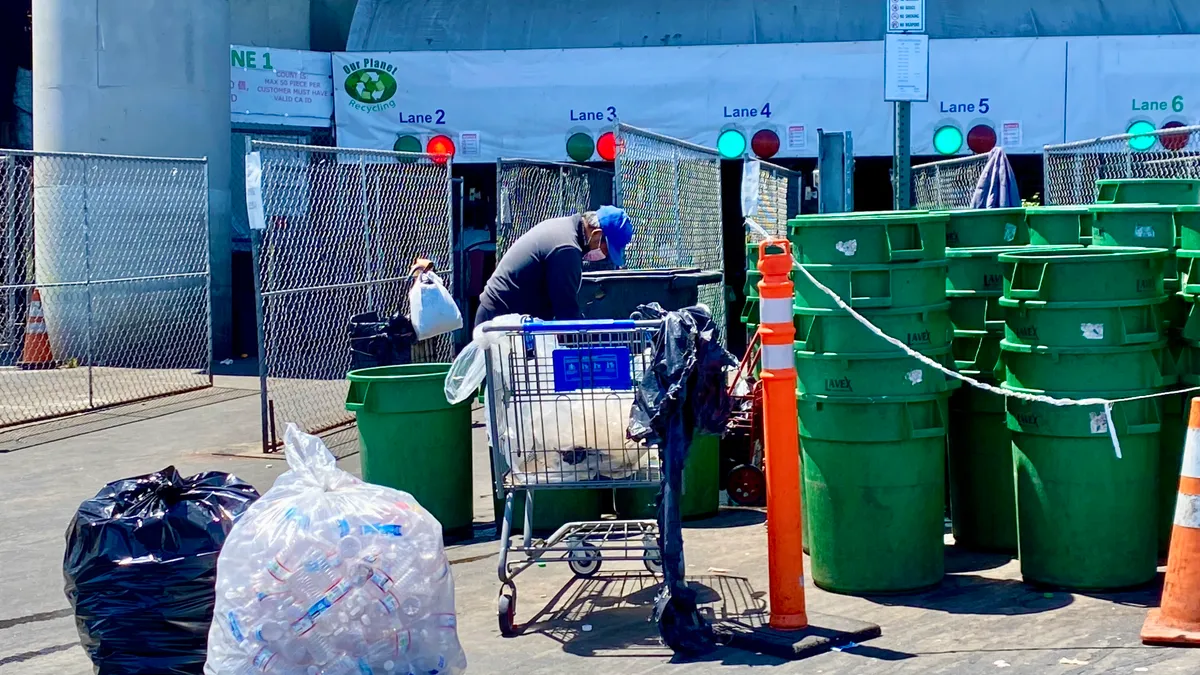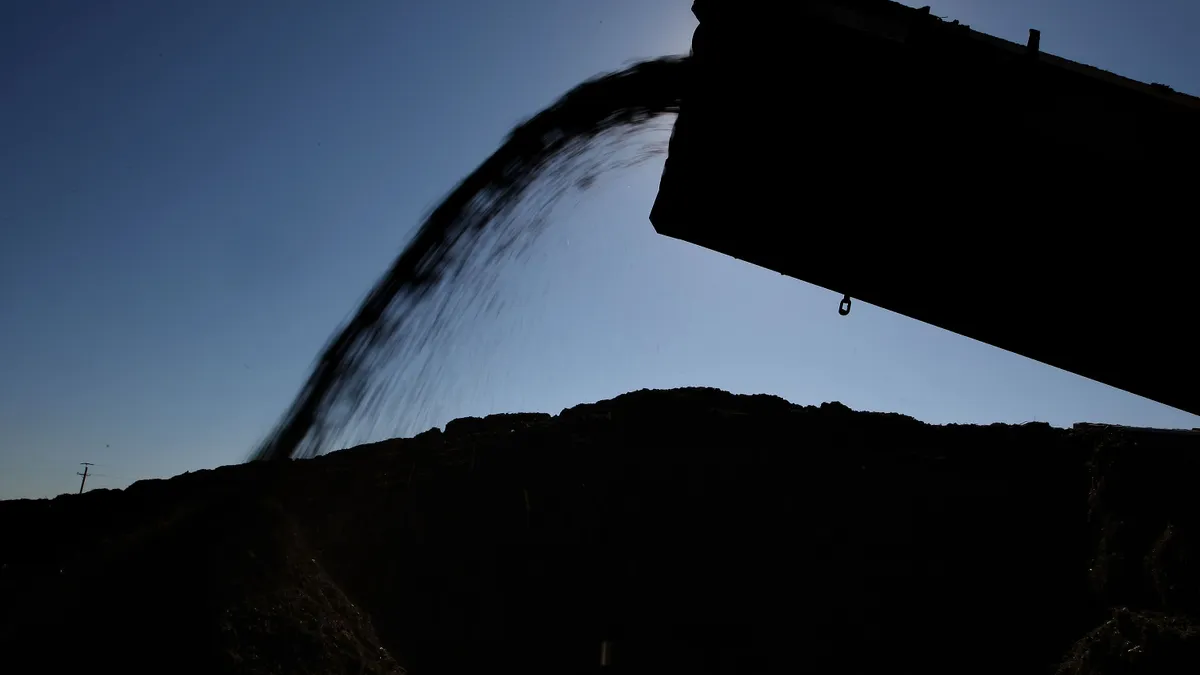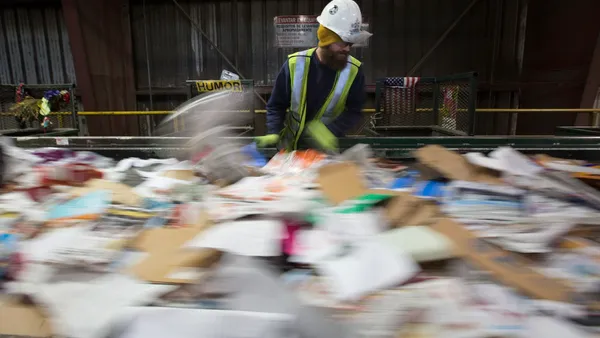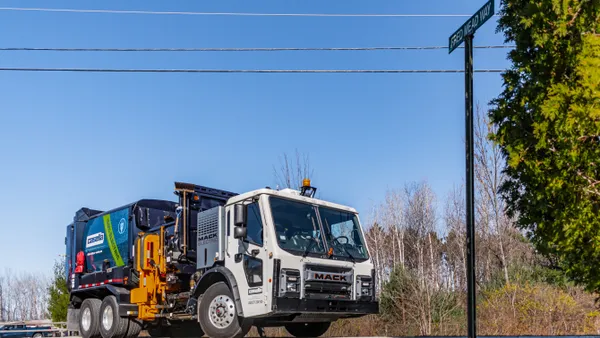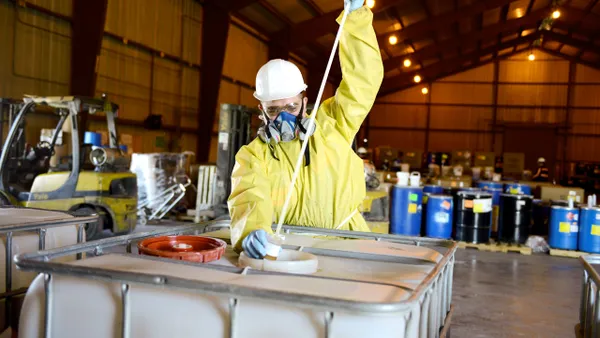Dive Brief:
- Plastic, a petroleum product, was viewed as a commodity, but the material is dropping at a steady rate due to plummeting oil prices.
- Since plastic is made from petroleum, the diminished value of oil is not providing value, as the lower prices make it cost effective to create new bags instead of recycling used bags. The same reasoning is prompting polyethylene terephthalate (PET) recycling to sputter- recycling PET is too costly to ensure a profit, while new PET continues to be the less expensive option.
- The other issue, industry officials cite is a proliferation of government policies. These mandates push companies to use a greater amount of recyclables, the down-side of which is an over-supply of plastics- flooding the market at the same time demand has fallen sharply.
Dive Insight:
David Steiner, the CEO and president of Waste Management, has been outspoken about the direction the recycling industry is heading. In November 2013, he warned that “Recycling is not profitable.” He continued that the company lost money for the past 1.5 years preceding his statement.
In February 2015, Waste Management released its Q4 2014 results, which the company said was impacted by challenges from its recycling arm. Waste Management began losing money in recycling in Q4 of 2013- this marked the first time in almost 15 years the waste and recycling behemoth had ever lost money in recycling.
Most recently, Steiner said the industry is experiencing a crisis in the US. He noted that recycling companies are going out of business “left and right” as commodity prices appear to be in a free fall.
It’s not just affecting the US. Chris Collier, the commercial director for the UK recycler CK Group, said “Many in the industry are hanging by the skin of their teeth. Everybody is desperately chasing for money to stay alive.”


